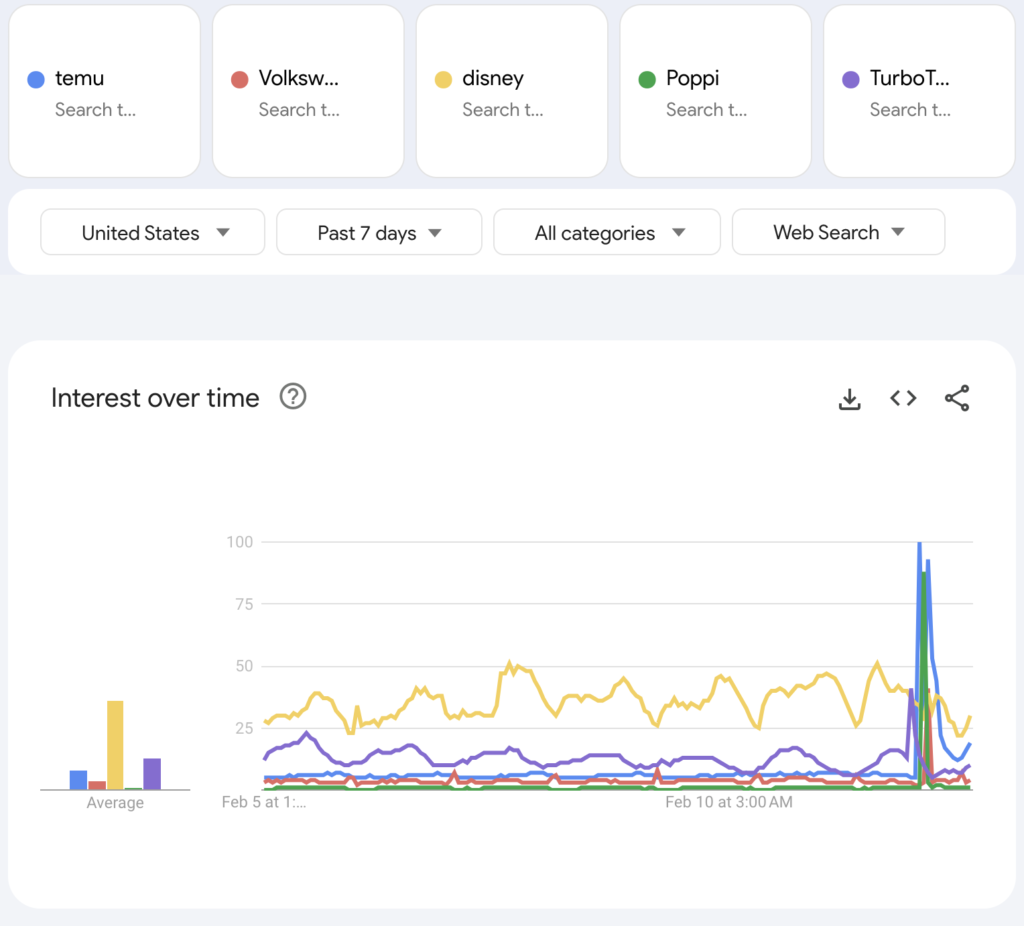Temu, a Chinese retail giant that allegedly utilizes forced labor, beat every other Super Bowl advertiser in searches after buying three ad spots during the game, according to insights compiled by Pens.com.
GOP lawmakers pleaded with CBS to block Temu’s reported $15 million ad spend over concerns that the company could be using forced labor, but CBS allowed the conglomerate to purchase three in-game ads anyway, according to Pens UK.
“The Chinese Communist Party wants to profit off the United States every chance they get. It is disgusting to subject the American people to a reported $15 million worth of ads for products made with Uyghur slave labor,” Republican West Virginia Rep. Carol Miller told the Daily Caller. (RELATED: Biden To Lift Sanctions On Chinese Human Rights Abuser In Exchange For Xi’s Latest Promise To Combat Fentanyl: REPORT)
“Allowing Temu to air these ads during the most popular American sporting event would effectively be an endorsement of what the CCP stands for. I strongly urge CBS to remove any ad by Temu from the Super Bowl LVIII commercials,” Miller added.
Temu’s spend paid off, sparking a 1,139 percent increase in search volume on Google, according to Pens.
A Google Trends index of all 63 brands who purchased ad spots for Super Bowl LVIII showing Temu surging the highest during the game. Courtesy of Pens.com.
“Already averaging a volume of 4.6 million online searches a month in the US alone, Temu is steadfast in its pursuit of becoming America’s leading shopping app. In 2023, the brand was estimated to have paid $1.7 billion in marketing alone,” a Pens spokesperson told the Daily Caller.
“Since its Super Bowl debut last year, the platform expanded to three slots this year, sparking significant controversy along the way as the company grapples with ethical accusations,” the spokesperson continued. “Emerging as the undisputed leader among its competitors that night, the remarkable surge in popularity has led the company to establish itself as a substantial player in the industry.”
In June 2023 the House Select Committee on the Chinese Communist Party reported that Temu makes no effort to comply with the Uyghur Forced Labor Prevention Act, leading the committee to conclude the company is likely benefitting from forced labor.
Republican Wisconsin Rep. Mike Gallagher, who chairs the committee, claimed that “Temu is doing next to nothing to keep its supply chains free from slave labor.”
The committee’s investigation also found that Temu and a similar fast fashion brand called Shein were responsible for over 30 percent of all packages shipped to the United States daily under the de minimis provision, a trade exemption that allows goods valued under $800 to escape taxes and red tape, according to the National Foreign Trade Council.
China has also made a concerted effort to stop attempts to monitor their treatment of the Xinjiang region’s minority Uyghur population, sanctioning a U.S. firm that worked to ensure Chinese companies are compliant with U.S. restrictions on the use of forced labor.
The Council on Foreign Relations has accused the Chinese Communist Party of conducting a mass subjugation campaign against the Uyghurs that includes reeducation camps, forced labor and involuntary sterilizations.


